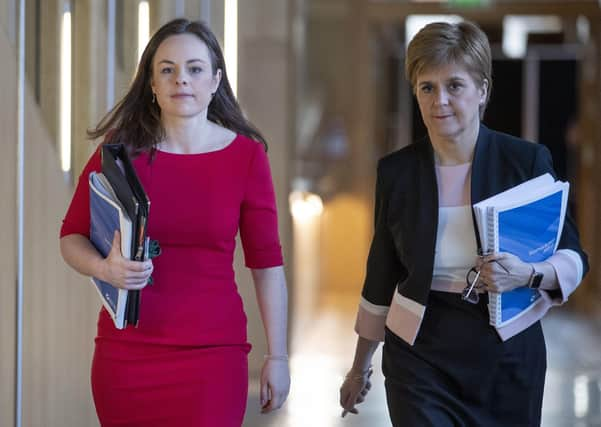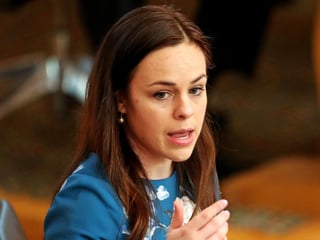Scottish Budget debate was a non-event that masked a tax rise – Bill Jamieson


Few fixtures are more important in the Holyrood timetable than the Scottish Budget. Changes in tax levels and rates, spending boosts for favoured departments and bold measures to help business and lift our anaemic growth rate – big picture concerns. But instead the debate this week largely a non-event. It was all the BBC’s political editor Brian Taylor could do to keep from slumping comatose on his laptop.
The Conservatives, Tories, Labour and the Liberal Democrats all submitted extensive lists of finance proposals. But they got little. The Greens got some commitment on free bus travel for under-19s, the Lib Dems burrowed down a rabbit hole about the SNP’s stance on the Heathrow third runway and Labour’s Richard Leonard raised the closure of certain GP out-of-hours services in Glasgow. It was all more suited to parish council griping than the budget debate of a national parliament.
Advertisement
Hide AdAdvertisement
Hide AdMore concerning for Scottish voters was the announcement of council tax increases for our 32 local authorities. A prominent feature of our economic landscape – and one of the few aspects to cheer – is the low rate of inflation. Even allowing for the bump up from 1.3 per cent to 1.8 per cent in January, it is still below the Bank of England’s target rate of two per cent.
But local government finance operates in a different universe from the rest of us. And despite all the wailing about cash-strapped households and families struggling to cope, councils are forging ahead with rate rises more than double the current inflation rate. Increases in some areas stretch up to 4.84 per cent from 1 April.
Argyll and Bute restrained its increase to 4.5 per cent, taking the Band D tax bill to £1,367.73. But among the most frugal, with rate rises in this band held down to three per cent were Angus (Band D rate bill now £1,206.54), Clackmannanshire (£1,304.63), and South Lanarkshire (£1,203.69).
But there was keen competition at the top end, with 14 posting rises of 4.84 per cent. These included Aberdeenshire (Band D rates bill now £1,300.81), East Renfrewshire (£1,289), Midlothian £1,409) and Borders (£1,253). Edinburgh contented itself with a 4.79 per cent rise to £1,338.58 (what parsimonious exactitude!) while Glasgow held itself to a 4.64 per cent increase to £1,386.
The Band D figures above do not include water and sewerage charges. Therefore, the final household bill will be bigger. Budget cheer all round, then.
